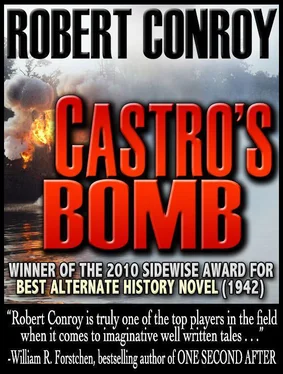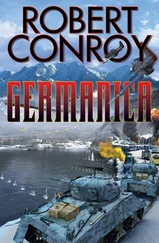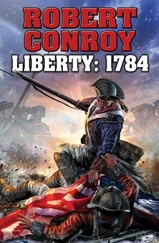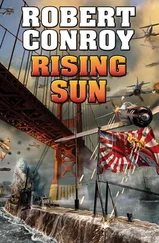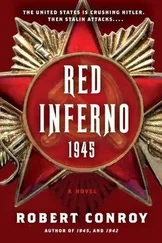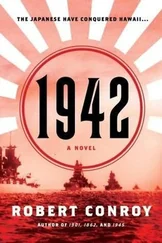Robert Conroy - Castro's bomb
Здесь есть возможность читать онлайн «Robert Conroy - Castro's bomb» весь текст электронной книги совершенно бесплатно (целиком полную версию без сокращений). В некоторых случаях можно слушать аудио, скачать через торрент в формате fb2 и присутствует краткое содержание. Год выпуска: 2011, Жанр: Альтернативная история, на английском языке. Описание произведения, (предисловие) а так же отзывы посетителей доступны на портале библиотеки ЛибКат.
- Название:Castro's bomb
- Автор:
- Жанр:
- Год:2011
- ISBN:нет данных
- Рейтинг книги:5 / 5. Голосов: 1
-
Избранное:Добавить в избранное
- Отзывы:
-
Ваша оценка:
- 100
- 1
- 2
- 3
- 4
- 5
Castro's bomb: краткое содержание, описание и аннотация
Предлагаем к чтению аннотацию, описание, краткое содержание или предисловие (зависит от того, что написал сам автор книги «Castro's bomb»). Если вы не нашли необходимую информацию о книге — напишите в комментариях, мы постараемся отыскать её.
Castro's bomb — читать онлайн бесплатно полную книгу (весь текст) целиком
Ниже представлен текст книги, разбитый по страницам. Система сохранения места последней прочитанной страницы, позволяет с удобством читать онлайн бесплатно книгу «Castro's bomb», без необходимости каждый раз заново искать на чём Вы остановились. Поставьте закладку, и сможете в любой момент перейти на страницу, на которой закончили чтение.
Интервал:
Закладка:
The four of them, Elena, Cathy, Charley, and Andrew, liked to meet at least every couple of weeks and go over what was transpiring. First, each couple was planning a fall wedding. Not a double wedding. Instead, the ceremonies would be a couple of weeks apart so that each could attend. Nor was either person going to be a groomsman or maid of honor for the other. That was preserved for relatives, even though, in Cathy's case, it meant involving some really distant cousins that she hardly knew along, along with her sister and Andrew's two sisters. Andrew had a couple of marine buddies along with friends from back home to stand up for him.
Charley had no relatives that counted, so he was depending on Elena to provide the bulk of the crowd. She assured him that her Hispanic family was large and there'd be no problem. He'd asked Jock Soriano to be best man.
For Andrew, a number of questions had been answered. He had been de-briefed by Charley Kraeger at first and then, to his surprise, by Director McCone himself, after which he and Cathy had lunch at the White House with the president and first lady.
As surmised, the federal government wanted no talk about a missing nuke. There had been no mention of it in the press or elsewhere. The Soviets didn't want to admit that they'd lost one, and the United States didn't want to admit that their armed forces were threatened by one. As to the Cubans, the Russians had bullied them into silence. Therefore, it had never happened.
Andrew had to agree with their logic. Had he actually seen a bomb? Had he been able to identify the rocket that the Russians had taken as actually being nuclear? For that matter, was he even certain that the men who'd killed Guevara had even been Russians? Maybe the whole thing had been a bad but exciting dream?
Of course, he knew full well that it had been a nuke and the men had been Russians, but as long as there was the smallest possibility he was wrong the story could never be confirmed. The CIA and the army were still evaluating the relevance of proof of the existence of Soviet Special Forces. Maybe he’d write his memoirs in a few decades and tell of it. Of course, who would believe it? Maybe he should write it as a novel?
Only one fact was indisputable — Che Guevara was dead, apparently killed in the final moments of the battle for Guantanamo. The media was having a ball speculating that he might have been killed by other Cubans, and the US government was happy to let those rumors swirl.
Andrew wondered what would happen if he fought the decision and went public with what he'd seen, or thought he had seen. Perhaps he'd be recalled to the Corps and stationed in Antarctica for the rest of his life. Acquiescence seemed like a really good idea. He'd come out of it with a Purple Heart and the Bronze Star.
He'd gotten a congratulatory phone call from Major Hartford who had been allowed to re-enlist. After all, he was a genuine hero for getting his men out of the camp and had gotten his picture on the cover of Time, so who cared about his bad feet?
Besides, both his and Cathy's silence came with a bonus. The CIA would bankroll his law school studies at Georgetown and then give him a job at the Agency. Apparently they needed lawyers as much as spies. Cathy, too, had been offered a job by McCone and had taken it. She was going to instruct new agents in the fine art of writing legible reports and assist those agents who weren't American born with the basics of their new language. She'd already started and was enjoying it immensely as her students were, like the men at Guantanamo, highly motivated.
If these were bribes, neither Andrew nor Cathy cared. Subject to CIA approval, Cathy had also been offered a book contract and somebody wanted to make a movie about her adventures. Hollywood had gone slightly bonkers when it came out that she'd actually gunned down a Cuban soldier who'd been threatening to kill her. There would be no mention of a nuclear rocket or the fact that the man had raped her. Cathy and he hoped that whatever money she got would help buy a house. If they got twenty thousand dollars out of the deal they could buy a really good one for cash.
They finished their lunch and walked outside where the heat hit them like a club.
"Can we go back inside?" Charley moaned.
They had a fairly long walk to their cars and they would be drenched with sweat by the time they reached them. It really didn't matter. They were happy.
Charley was the first to sense the commotion. People were gathering around a man who had a transistor radio in his hand. Voices were raised in anger and in shock. Others began to gather as well.
"What the hell?" Charley said as they walked quickly over to the nearest group of people.
The recently ended Cuban war was still the main topic of conversation in Washington and elsewhere. It had been a costly victory and the funerals of dead servicemen were still raw memories. Many wounded were still in hospitals and too many were going to be there for a very long time as they learned to function without limbs or eyes.
President Kennedy continued to take a lot of heat for his actions, or, as some said, his inactions. He remembered former President Truman's comment about not being in the kitchen if you couldn't stand the heat. Well, he thought ruefully, it was hot as any kitchen right now.
The war had cost fifteen hundred American dead and another five thousand wounded. Another score were missing and presumed dead, mainly crewmen lost with the destroyer the Cubans had sunk. The body count numbers began with the day of the attack on Gitmo and on to the end of the fighting.
Cuban casualties were not announced by Havana. However, they were estimated by the newspapers at ten times America's and the bleeding hearts in the UN were crying that the United States had slaughtered helpless Cubans in a merciless orgy of violence. Bullshit, JFK thought. Had they forgotten who'd started the war in the first place? No, he thought. They just hated the United States.
The scope of the defeat had shaken the Castro regime. Castro was now even more isolated then he had been since the Soviets, his one-time close friends, were thoroughly angry with him. It was rumored that Fidel and Raul might not last very long and would soon disappear. Contenders for the throne included Emilio Aragones Navarro, the former Cuban representative to Russia who was disavowing support for the war.
The Castro brothers were trying to make Che Guevara out to be a martyr killed by brutal Americans, as a means of getting sympathy for their regime, but it didn't seem to be working.
Another curious claimant to control in Havana was a General Cordero who appeared to be in charge of Santiago and much of eastern Cuba. It was rumored that the U.S. was bankrolling his private army.
Castro's losses extended beyond the dead and wounded. For all intents and purposes, his air force and armor no longer existed, and he was not likely to get any more planes from the Soviets or their Warsaw Pact allies. Castro's leading general, Juan Ortega, was recovering in an American military hospital and, after confirming that his family had been spirited out of Havana, was cooperating fully with his captors. He'd reluctantly come to agree that Guantanamo would not be liberated in the foreseeable future and that further blood should not be spilled over it.
CIA and State Department analysts agreed that Fidel and Raul's days were numbered. Whoever replaced them would doubtless preserve at least a semblance of a socialist regime and would attempt a balancing act between the far away Soviets and the Americans next door. Regardless, it would probably evolve into a warmer relationship between the U.S. and Cuba.
Back-channel contact with the Soviets also said that the hypothetical Luna rescued by their hypothetical forces had been damaged in transit from Havana to Guantanamo and might not have been successfully launched or even gone off. It was said that the Luna would probably have been more of a threat to those trying to launch it than any intended target.
Читать дальшеИнтервал:
Закладка:
Похожие книги на «Castro's bomb»
Представляем Вашему вниманию похожие книги на «Castro's bomb» списком для выбора. Мы отобрали схожую по названию и смыслу литературу в надежде предоставить читателям больше вариантов отыскать новые, интересные, ещё непрочитанные произведения.
Обсуждение, отзывы о книге «Castro's bomb» и просто собственные мнения читателей. Оставьте ваши комментарии, напишите, что Вы думаете о произведении, его смысле или главных героях. Укажите что конкретно понравилось, а что нет, и почему Вы так считаете.
